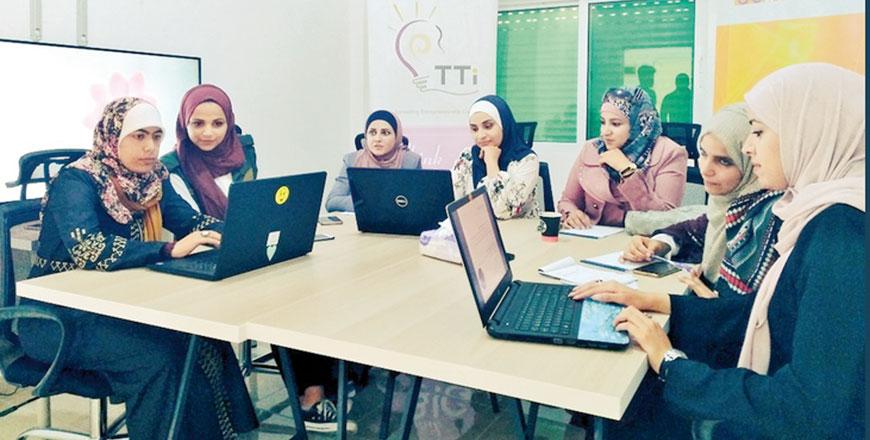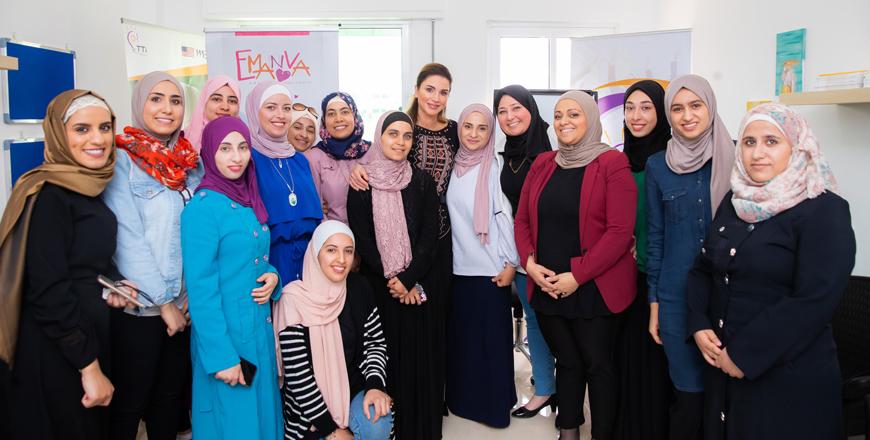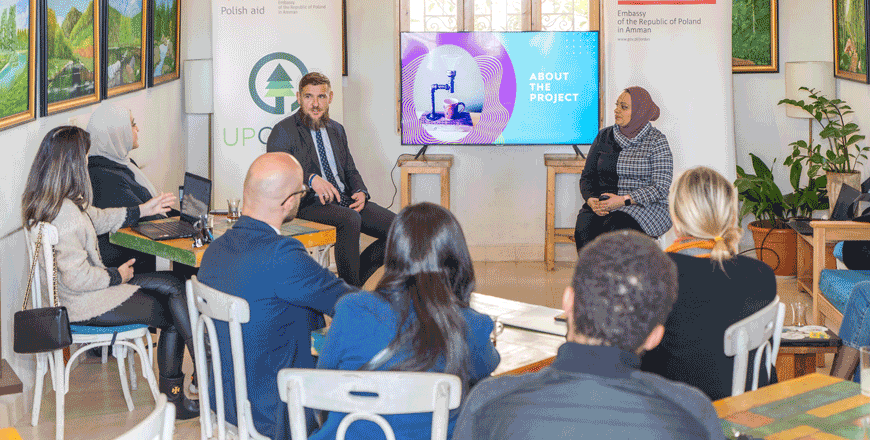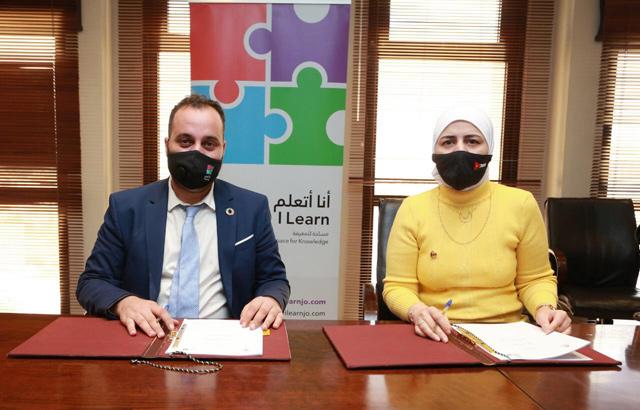You are here
Irbid-based female entrepreneur ‘incubator’ expands to Karak
By Camille Dupire - May 21,2018 - Last updated at May 21,2018

‘SheInnovate2’ was recently launched in Karak to help more women entrepreneurs across the Kingdom develop their business ideas (Photo courtesy of Trip To Innovation)
AMMAN — People who want to innovate do not necessarily know where to start and often need a bit of guidance to be able to unleash their entrepreneurial potential, said Neda’ Kharoub, co-founder of Trip to Innovation (TTI), a non-governmental organisation aimed at supporting innovation and entrepreneurship among youth and women around Jordan.
Set up in 2010 in Irbid, TTI recently launched “SheInnovate2”, the second edition of its female incubator programme that targets women entrepreneurs in Irbid and Karak governorates with the support of USAID Jordan Local Enterprise Support Project.
“‘SheInnovate2’ follows the first edition of our project ‘SheInnovate1’, which was conducted last year in Irbid and reached 300 women, providing them with entrepreneurship awareness and training services,” TTI Director Belal Raslan told The Jordan Times, noting that ten of these women were enrolled in the final incubator.
Following the success of its 2017 project and the creation of a new incubator in Karak, the organisation started expanding its scope to the southern governorate, by supporting over 25 aspiring female entrepreneurs, nine of whom were “incubated”.
“We seek to create a platform to support the innovation and social entrepreneurship culture among Jordanian women and youth by providing these groups with some basic skills to enhance their natural abilities and help them turn their ideas into viable and sustainable projects,” Kharoub said, noting that the incubation phase helps beneficiaries map their business ideas into a workable business model through various training on technical topics such as idea validation, business model and planning, fundraising and marketing.
“Many women have great capacities and amazing ideas; they just need a little push to put them into action,” the co-founder continued, noting that the training programmes focus on business, legal and financial support services such as business registration and ICT inclusion to help incubatees acquire the skills they need to organise their thoughts and create a coherent project.
After various phases of filtration, a selected number of businesses are accepted into a six-month incubation phase, resulting in the women-owned businesses’ registration with ICT-enabled services such as e-shops and e-services.
Aware of the various backgrounds the aspiring entrepreneurs are coming from, TTI also focuses on providing gradual and adapted programmes which are catered to the needs of all women who apply.
“To start off, it seemed essential to focus on the knowledge aspect of entrepreneurship because, although some of our participants are already well on track, some unemployed women lost touch with the latest practices in the labour market,” said Raslan, noting that the beneficiaries are progressively acquainted with the world of entrepreneurship through technical topics required to develop business ideas.
“Once they set up their businesses, we do not release female entrepreneurs into the market without support though; TTI keeps supporting them through mentorship and regular advisory services from our team of experts,” Raslan explained, citing the trainees’ introduction to local and international role models who share their personal success stories and provide businesswomen with guidance and advice on creating a strong and sustainable network with the business community.
In July 2017, TTI decided to physically record that network by creating the first “entrepreneurship ecosystem map” of Jordan that lists 150 entities divided into eight main categories: finance, support organisations, advisory services, education, corporation, media, government and donors.
“We created the map with the aim of calling for a national agenda for entrepreneurship, supported with reliable statistics and references. The map seeks to serve as a reference for the key stakeholders and decision makers to identify opportunities and gaps in the entrepreneurial ecosystem,” Raslan pointed out.
Since its foundation, TTI has won regional recognitions including a royal recognition as a local success story in 2015, the 2017 CSR Arabia Social Entreprise Award and the BADIR Fellowship.
Related Articles
KARAK — Her Majesty Queen Rania on Wednesday paid a visit to Karak, where she met with a number of woman entrepreneurs and business owners f
AMMAN — After a six-month run, the Green Business Incubator, a project with a focus on upcycling and entrepreneurship came to a close on Sun
AMMAN — The Ministry of Digital Economy and Entrepreneurship has signed two memoranda of understanding for three years with NasJo Training C














